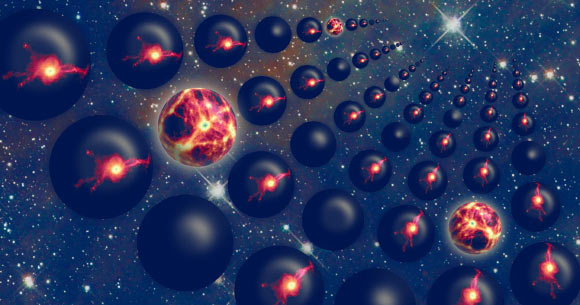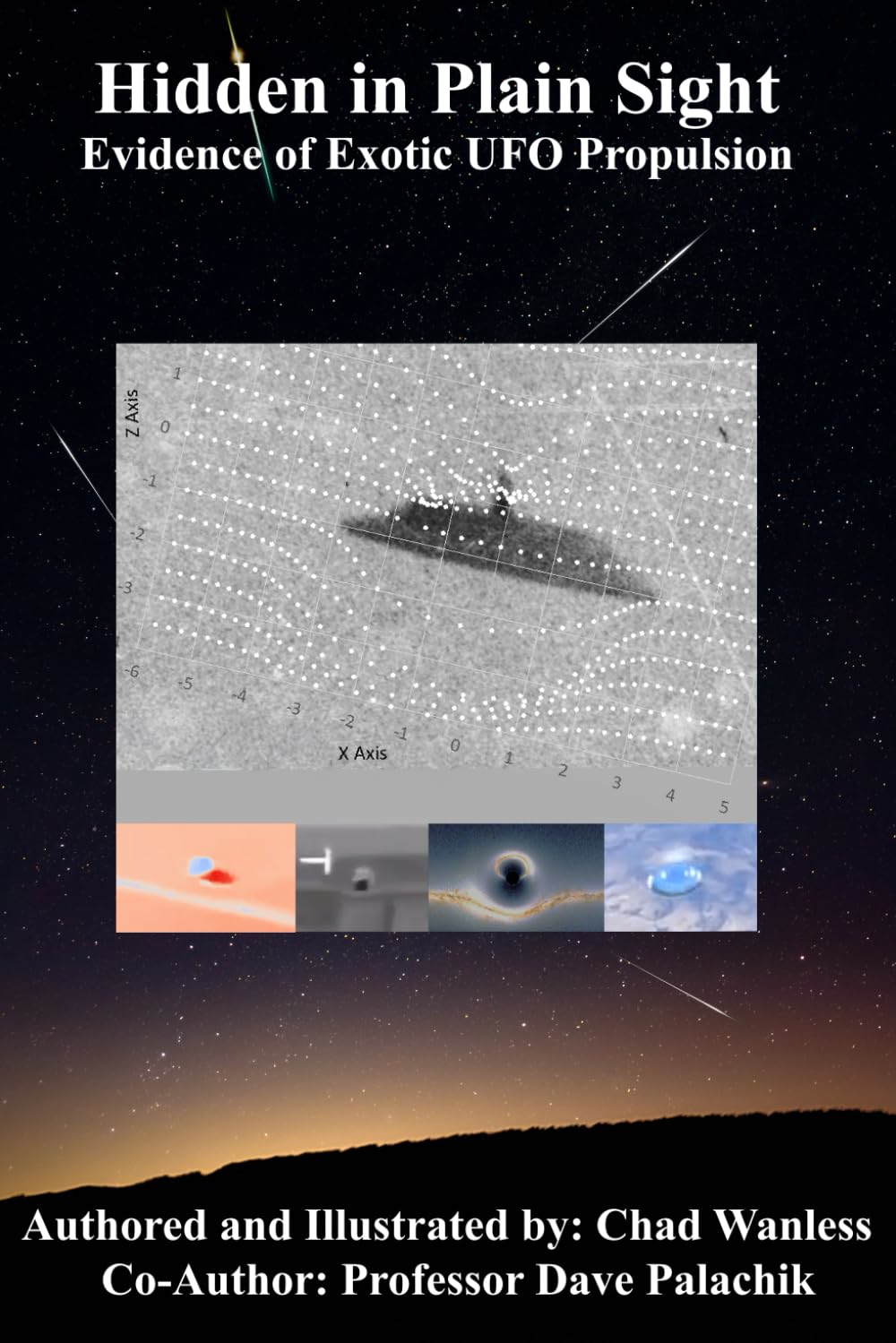Questions about whether other universes might exist as part of a larger Multiverse, and if they could harbor life, are burning issues in modern cosmology. Now, new research — published in two papers in the Monthly Notices of the Royal Astronomical Society — has shown that life could potentially be common throughout the Multiverse, if it exists; and the key to this is dark energy, a form of energy that naturally permeates all space and tends to increase the rate of expansion of the Universe.
Current theories of the origin of our Universe predict much more dark energy in the Universe than is observed.
Adding larger amounts would cause such a rapid expansion that it would dilute matter before any stars, planets or life could form.
Introduced in the 1970-80s, the Multiverse theory can explain the ‘luckily small’ amount of dark energy in our Universe that enabled it to host life, among many universes that could not.
Using state-of-the-art computer simulations, a research team led by Durham University, Western Sydney University, and the Universities of Sydney and Western Australia has found that adding dark energy, up to a few hundred times the amount observed in our Universe, would actually have a modest impact upon star and planet formation.
This opens up the prospect that life could be possible throughout a wider range of other universes, if they exist.
“For many physicists, the unexplained but seemingly special amount of dark energy in our Universe is a frustrating puzzle,” said co-lead author Jaime Salcido, a postgraduate student at Durham University.
“Our simulations show that even if there was much more dark energy or even very little in the Universe then it would only have a minimal effect on star and planet formation, raising the prospect that life could exist throughout the Multiverse.”
The simulations were produced under the Evolution and Assembly of GaLaxies and their Environments (EAGLE) project.
“The Multiverse was previously thought to explain the observed value of dark energy as a lottery — we have a lucky ticket and live in the Universe that forms beautiful galaxies which permit life as we know it,” said co-lead author Dr. Luke Barnes, a researcher at Western Sydney University and the University of Sydney.
“Our work shows that our ticket seems a little too lucky, so to speak. It’s more special than it needs to be for life. This is a problem for the Multiverse; a puzzle remains.”
“We asked ourselves how much dark energy can there be before life is impossible? Our simulations showed that the accelerated expansion driven by dark energy has hardly any impact on the birth of stars, and hence places for life to arise,” said co-lead author Dr. Pascal Elahi, a scientist at the University of Western Australia.
However, the results were unexpected and could be problematic as they cast doubt on the ability of the theory of a Multiverse to explain the observed value of dark energy.
If we live in a Multiverse, we’d expect to observe much more dark energy than we do — perhaps 50 times more than we see in our Universe.
Although the results do not rule out the Multiverse, it seems that the tiny amount of dark energy in our Universe would be better explained by an, as yet, undiscovered law of nature.
“The formation of stars in a universe is a battle between the attraction of gravity, and the repulsion of dark energy,” said team member Professor Richard Bower, of Durham University.
“We have found in our simulations that universes with much more dark energy than ours can happily form stars. So why such a paltry amount of dark energy in our Universe?”
“I think we should be looking for a new law of physics to explain this strange property of our Universe, and the Multiverse theory does little to rescue physicists’ discomfort.”
Source: Sci News
































Leave a Comment
You must be logged in to post a comment.